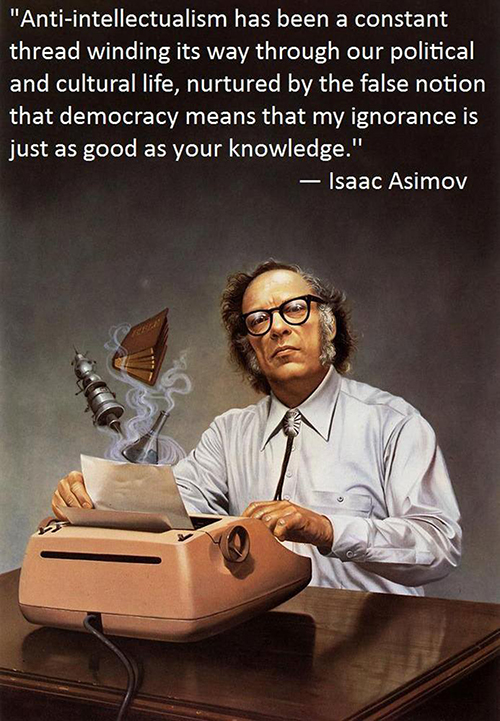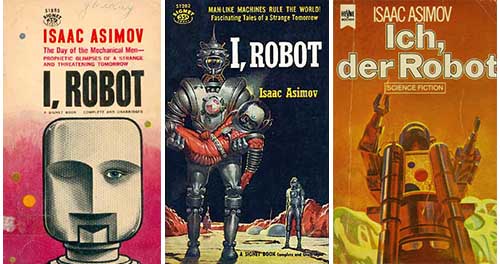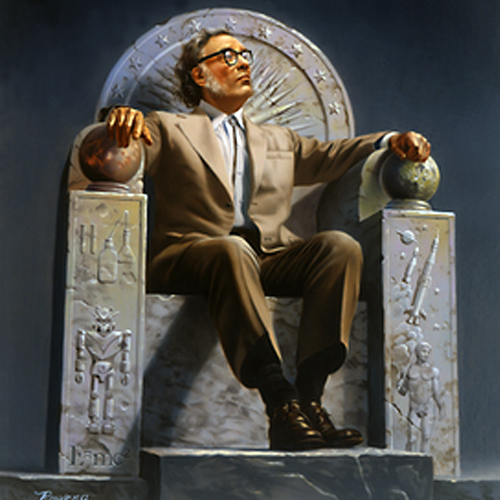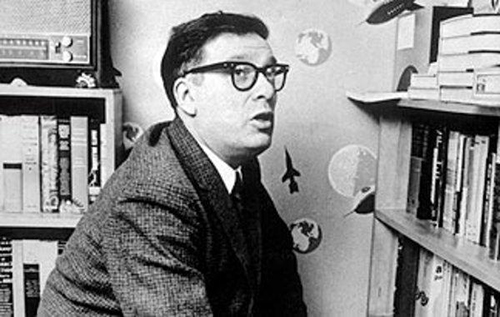Working with Android phones a lot, I need to pay an homage to the fabulous Asimov, the great author and professor of biochemistry who is best known for his works of science fiction and for his popular science books.
“The Oxford English Dictionary credits his science fiction for introducing the words positronic (an entirely fictional technology), psychohistory (which is also used for a different study on historical motivations) and robotics into the English language. Asimov coined the term robotics without suspecting that it might be an original word; at the time, he believed it was simply the natural analogue of words such as mechanics and hydraulics, but for robots.
Unlike his word psychohistory, the word robotics continues in mainstream technical use with Asimov’s original definition. Star Trek: The Next Generation featured androids with “positronic brains” giving Asimov full credit for “inventing” this fictional technology.”
He believed that his most enduring contributions would be his “Three Laws of Robotics” and the Foundation Series. His 3 laws of robotics are:
A robot may not injure a human being, or, through inaction, allow a human being to come to harm.
A robot must obey the orders given it by human beings except where such orders would conflict with the first law.
A robot must protect its own existence as long as such protection does not conflict with the First or Second Law.
 Some other interesting quotes by him:
Some other interesting quotes by him:
“Creationists make it sound as though a ‘theory’ is something you dreamt up after being drunk all night.”
I just found out via Mark that Ray Bradbury passed away today; his Fahrenheit 451 is still relevant after 60 years!
“Dalton’s records, carefully preserved for a century, were destroyed during the World War II bombing of Manchester. It is not only the living who are killed in war.”
“I am not a speed reader. I am a speed understander.”
“If my doctor told me I had only six minutes to live, I wouldn’t brood. I’d type a little faster.”
“It is change, continuing change, inevitable change, that is the dominant factor in society today. No sensible decision can be made any longer without taking into account not only the world as it is, but the world as it will be.”
Watch him here with Bill Moyers.





